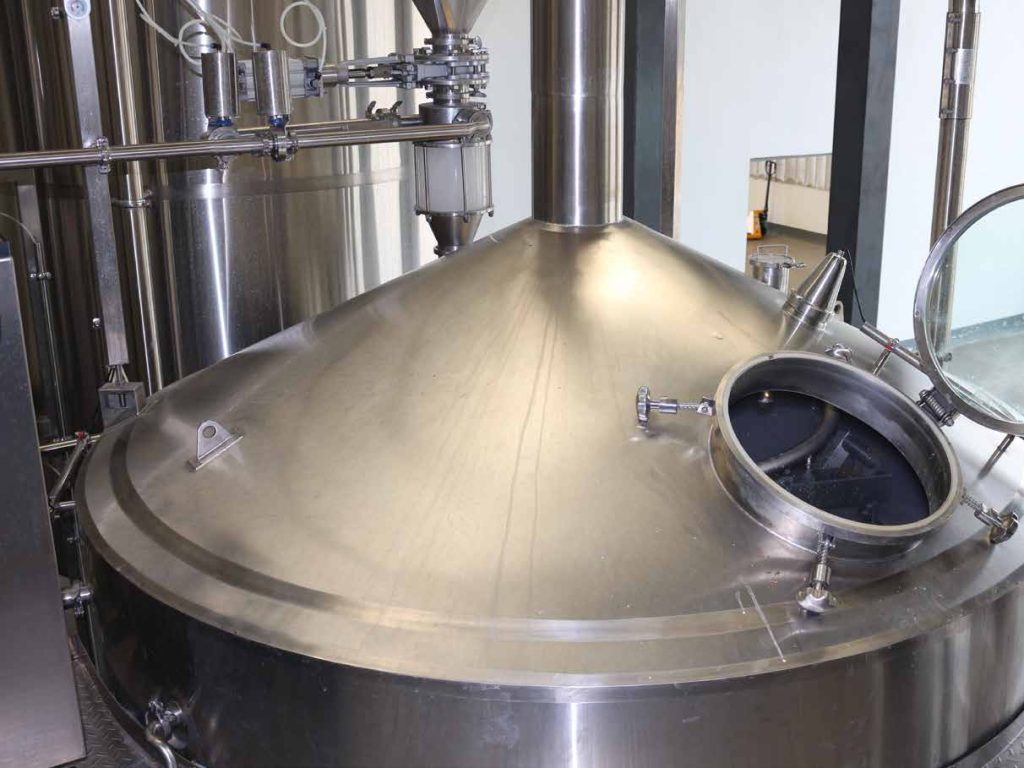Introduction
The Mash Lauter Tun is the central piece of equipment in any brewery, serving as the heart where the magic of beer-making begins. This vessel is where the process of mashing and lautering takes place, which are crucial steps in the brewing process. The Mash Lauter Tun is not just a container, but a complex system that allows for the efficient extraction of sugars from malted grains, setting the stage for fermentation and the creation of the final beer product.
Historical Perspective
The history of the Mash Lauter Tun dates back to the early days of brewing, with the concept evolving over centuries. Early versions were simple vessels that allowed for the steeping and draining of grains. However, with advancements in technology and brewing techniques, the modern Mash Lauter Tun has become a sophisticated piece of equipment, incorporating features like false bottoms for efficient lautering and temperature control systems for precise mashing.
Working Principles

The Mash Lauter Tun operates on a simple yet ingenious principle. Malted grains are mixed with water in the tun to create a mash. This mash is then heated to a specific temperature range, allowing enzymes to break down complex starches into fermentable sugars. The tun is equipped with a false bottom or a filter system that separates the liquid wort from the solid grain particles. This separation process, known as lautering, is critical for achieving a clear wort and a consistent extraction.
Types of Mash Lauter Tuns
There are various types of Mash Lauter Tuns, each designed to cater to different brewing scales and preferences. Here’s a brief overview:
| Type of Mash Lauter Tun | Description | Advantages | Disadvantages |
|---|---|---|---|
| Traditional Copper Tun | Made of copper, often used in smaller breweries | Aesthetically pleasing, good heat conductivity | Expensive, requires more maintenance |
| Stainless Steel Tun | Commonly used, made of stainless steel | Durable, easy to clean, cost-effective | Less visually appealing |
| Continuous Flow Tun | Designed for continuous brewing operations | High efficiency, reduces downtime | Complex setup, requires skilled operation |
Each type has its own set of advantages and disadvantages, making the choice of a Mash Lauter Tun dependent on the specific needs and resources of the brewery.
Brewing Process in Detail
The brewing process within the Mash Lauter Tun can be broken down into several stages:
- Milling: The grains are milled to the appropriate size to increase the surface area for better extraction.
- Mashing: The milled grains are mixed with water to create the mash. Different temperatures and rests are used to activate various enzymes.
- Lautering: The mash is allowed to settle, and the liquid wort is drained through the false bottom, separating it from the spent grains.
- Sparge: Hot water is sprayed onto the grains to rinse out additional sugars, a process known as sparging.
Each of these steps is carefully controlled to ensure the optimal extraction of sugars and the production of a high-quality wort.
Maintenance and Troubleshooting

Proper maintenance of the Mash Lauter Tun is essential for its longevity and efficiency. Regular cleaning and sanitization are required to prevent contamination and ensure hygienic conditions. Troubleshooting common issues such as clogging or uneven heating can be addressed by following manufacturer guidelines and best practices.
Conclusion
The Mash Lauter Tun is an indispensable piece of equipment in the brewery, playing a pivotal role in the production of beer. Understanding its workings, types, and the brewing process it facilitates is crucial for any brewer looking to produce high-quality beer. With proper care and maintenance, a Mash Lauter Tun can serve as a reliable and efficient workhorse in the brewery for many years to come.
FAQ
What is the role of the Mash Lauter Tun in the brewing process?
The Mash Lauter Tun is where mashing and lautering take place. It is responsible for the extraction of fermentable sugars from malted grains.
How does the temperature affect the mashing process?
Temperature is crucial during mashing as it influences the activity of enzymes that break down starches into fermentable sugars. Different temperature rests are used to activate various enzymes.
Can a Mash Lauter Tun be used for different types of beer?
Yes, the Mash Lauter Tun can be used for various types of beer by adjusting the mashing and lautering parameters to suit the specific beer style.
How often should a Mash Lauter Tun be cleaned and maintained?
Regular cleaning and sanitization are recommended after every brewing session. More thorough maintenance should be performed according to the manufacturer’s guidelines.
What are some common issues that can occur with a Mash Lauter Tun?
Common issues include clogging of the false bottom, uneven heating, and contamination. These can be addressed through proper maintenance and troubleshooting.

